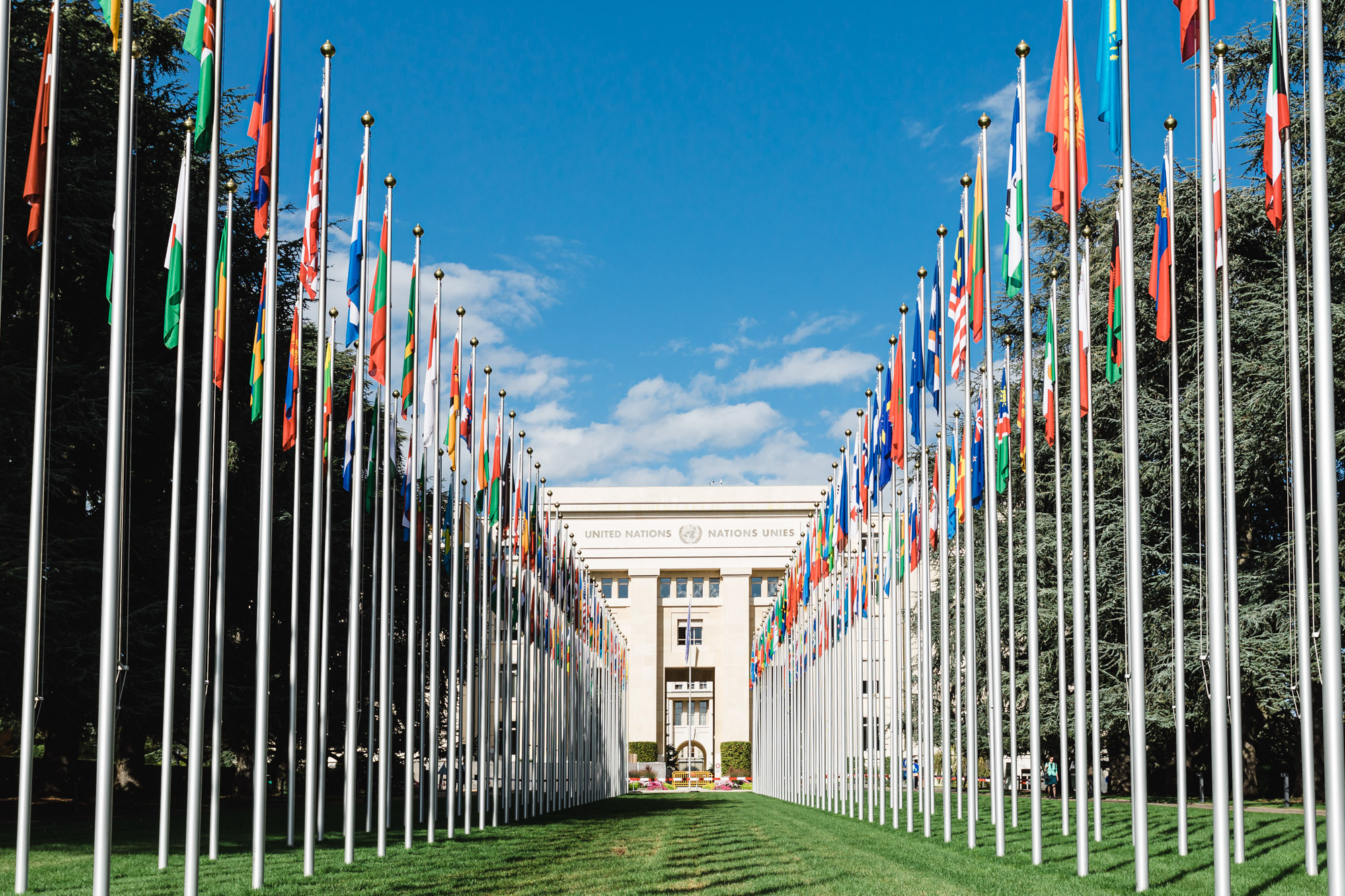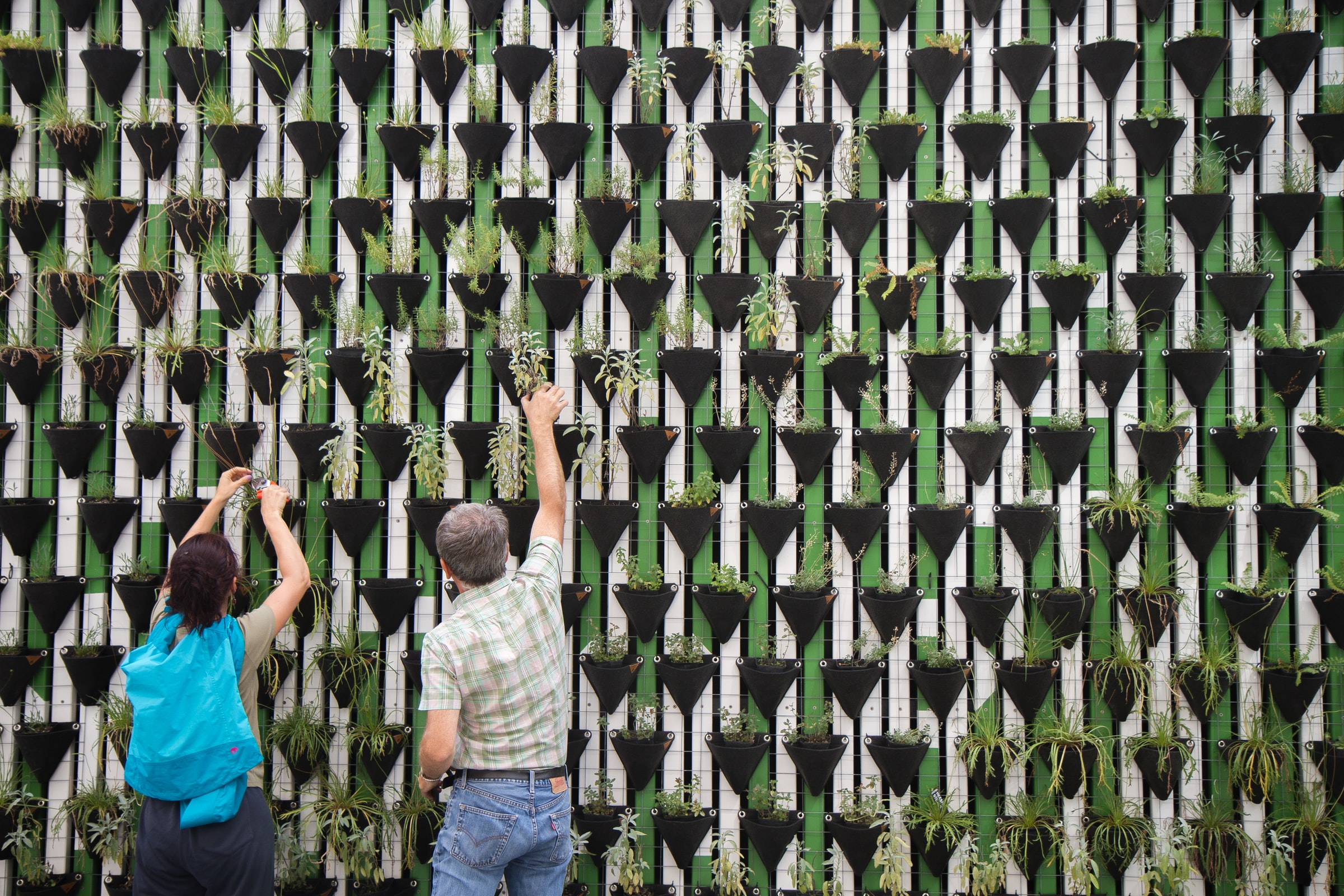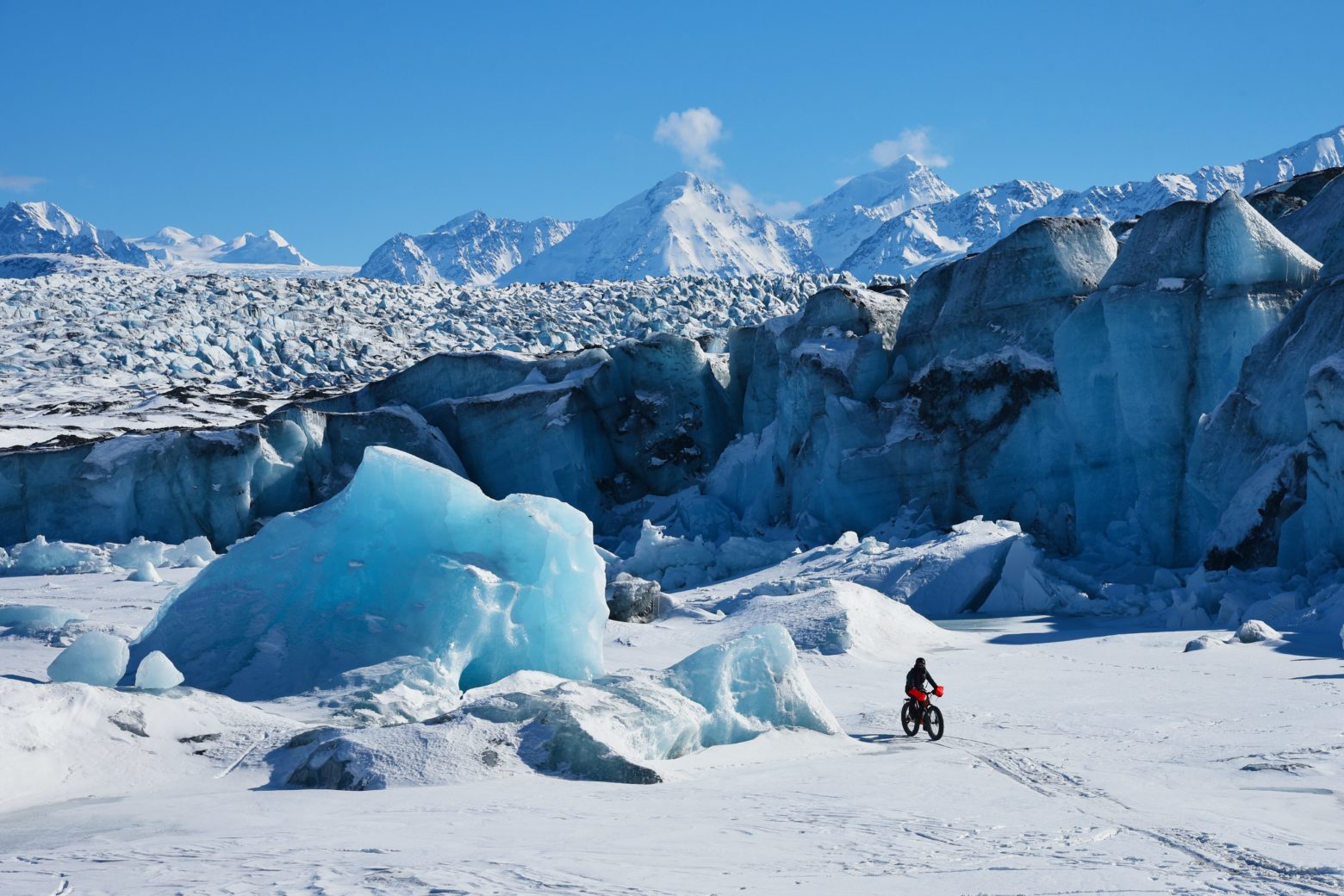The Arctic in transition: Energy, resilience & national security. Lessons from COP26 and where next for climate communications? Climate security in 3D: sustaining peace for the most vulnerable. Climate, migration and cities. Sustainable infrastructure: fiscal sustainability and innovative financing. How hydrogen can revolutionize the energy industry by 2030. Discover these and more online events of the week!
Subscribe to Climate Online’s newsletter to be reminded about weekly event updates by e-mail:

Biodiversity & Environment
9 February, 17:00 – 18:30 CET
“Healing the Wounded Land: How Public Incentives Help People Restore Latin America’s Ecosystems” by World Resources Institute – WRI
Restoring Latin America and the Caribbean’s degraded and deforested landscapes can produce substantial financial and social benefits for rural communities, store planet-warming carbon dioxide, and protect biodiversity. But, to protect and restore 50 million hectares of land by 2030, we need well-designed public incentives and subsidies that pay farmers, forest managers, and rural communities for safeguarding Latin America’s ecological integrity and economic productivity. Join WRI and Initiative 20×20 for the launch of a new Issue Brief that examines how six Latin American countries use public funding to reward communities for protecting and growing trees – and how governments can make that spending more efficient and effective.
10 February, 18:30 – 19:30 CET
“Money doesn’t grow on trees: The complexity of how we value nature” by Smart Prosperity Institute
When it comes to valuing nature, there are often critiques that market-based approaches and economic language and thinking undermine the true value of ecosystems and natural landscapes. The discussion will ask when and how attaching economic values to nature can be beneficial or harmful, and will include a range of perspectives and on-the-ground experiences speaking to how nature gets included and left out of decision-making.
11 February, 17:00 – 18:30 CET
“Modeling future deforestation and REDD+ in the Congo Basin: some lessons learnt” by Oxford University
The REDD+ mechanism was designed to reward countries financially for reducing emissions from deforestation and forest degradation and enhancing carbon stocks in forests. REDD+ would not be appealing to countries with low historical deforestation and high forest cover, if they could not adjust their forest reference level upwards to account for likely future development. However, it has been difficult for these countries to establish a credible adjustment, and to follow transparent, comparable, consistent, complete and accurate criteria. Aline Mosnier (UN Sustainable Solutions Development Network) will present different modeling approaches and results from projects spanning over 2010-2020 that aimed at supporting Congo Basin countries in the computation of their forest reference level. She will highlight the successes and difficulties encountered on the way, both technically from a modeling point of view, and institutional, and share some recommendations on how future modeling work could be more effective to help reduce deforestation in the region.

Climate Science & Policy
7 February, 20:00 – 21:00 CET
“Commoning as a Constructive Disruption of the Climate Impasse” by Oxford Climate Society
David Bollier, an American activist/scholar of the commons, will explain how commoning provides a powerful, insurgent paradigm for addressing climate change while nourishing hardy non-capitalist modes of production and governance. Around the world, commons function as effective social systems for stewarding shared wealth, ranging from land, water, and forests to farms and fisheries, digital code and infrastructure, alternative currencies, finance, and much else. By providing a coherent framework for building a regenerative economy, the commons paradigm challenges market/state definitions of feasible progress by showcasing already-working solutions that are decentralized, feasible, fair, and democratic. Bollier is Director of the Reinventing the Commons Program at the Schumacher Center for a New Economics in Massachusetts, USA.
8 – 11 February
“Unlocking the future: EU industrial ecosystems on the path to the green and digital transition” by European Commission
EU Industry Days is Europe’s flagship annual event, highlighting industrial frontrunners and ongoing industrial policy discussions whilst improving the knowledge base of European industry. It is the main platform to discuss industry challenges and co-develop opportunities and policy responses in an inclusive dialogue with a wide range of stakeholders. The 2022 edition will take place in hybrid format in Brussels and it will stimulate discussions across industrial ecosystems on their green and digital transition, in support of strengthening the resilience of EU companies (including SMEs).
8 February, 11:00 – 12:00 CET
“Lessons from COP26 and where next for climate communications?” by Media Trust
The recent COP26 summit saw a surge in both media coverage and public concern for climate change across all demographics. What did it teach us about the tools and tactics for effective public engagement? With the coming year being so important for driving action on the climate agenda, what opportunities are there for charity communicators? In this online session, Climate Outreach, ITV and the Natural History Consortium, will be sharing some of the communications and media highlights from COP26, and discussing what lies ahead for charities looking to engage audiences on the climate agenda this year. Attendees will take away tangible learnings and sector insights to apply within their own organisations.
8 February, 11:00 – 12:30 CET
“Climate Security in 3D: Sustaining Peace for the Most Vulnerable” by German, French and Irish Embassies to the UK and Adelphi
This event follows on from the high-level discussion at COP26 and aims to highlight how climate security risks affect the most vulnerable, using examples from a forthcoming Weathering Risk case study on Mali. The panellists will explore how climate security risks increase the vulnerability of those already facing the double burden of climate change and conflict, and what concrete opportunities exist to promote just, equitable and sustainable peace for most vulnerable communities in the face of these risks.
8 February, 14:30 – 15:30 CET
“Recent development and achievement in Land Surface Modeling” by Fondazione CMCC – Centro Euro-Mediterraneo sui Cambiamenti Climatici
People live on land, exploit its water and natural resources, and experience day-to-day weather which is strongly affected by feedback with the land surface. The importance of a credible representation of land surface processes, including heat fluxes, snow, soil moisture, vegetation, turbulent transfer and runoff, continue to be ranked highly on the list of the most relevant yet complex and poorly represented features in state-of-the-art climate models since several systematic biases and uncertainties persist.
For these reasons, it is fundamental to investigate the abilities and limits of state-of-the-art land surface models to improve the next generation of climate models. Recent developments at CMCC have focused on many aspects of land such as soil, land use and vegetation. In particular, the impact of soil characteristics on land-atmosphere interactions and land use on soil organic carbon, and vegetation phenology have been investigated in the latest analysis.
8 February, 14:30 – 16:00 CET
“Climate Knowledge Co-Production” by PRO-WASH & SCALE
Co-production of knowledge is a collaborative process that brings together different people, experiences and perspectives, to generate trust, collaboration, new knowledge and better long-term strategies. It has been used in fields such as healthcare to make services more relevant to users. In this webinar learning will be shared from two recently completed programs — Future Climate for Africa (FCFA) and Weather and Climate Information Services for Africa (WISER) — that used a range of co-production approaches to focus on service delivery, disaster risk reduction and development, based on user needs.
8 February, 18:00 – 19:15 CET
“The Arctic in transition: Energy, resilience & national security” by Atlantic Council
Retreating Arctic ice cover presents challenges far beyond global sea level rise. As a result of climate change, the Arctic is among the fastest warming regions in the world and is heating more than twice the global average. As such, novel shipping routes, illegal fishing activity, and nuclear submarine hiding places are emerging as the region becomes more accessible for a longer period throughout the year. What is the role of Arctic states in addressing challenges surrounding sustainable energy security and resilience? How can international entities including the Arctic Council address these challenges? How can organizations of Indigenous Arctic people remain involved as key stakeholders in the decisions made to address the geopolitical tensions? This discussion will highlight the opportunities of the Arctic region to ensure environmental protection and resilience, common security, appropriate resource development, and the rights of Indigenous inhabitants.
9 February, 14:00 – 15:15 CET
“Green steel: CBAM and ETS – do their current designs aid EU climate ambitions?” by Euractiv
(1) Is the Fit for 55 Package also “fit” to ensure a level playing field between EU steelmakers and non EU-steelmakers? (2) In light of the current energy and carbon prices spikes, how can the phasing out of free allowances be implemented in a sustainable way? (3) Can the CBAM coexist with the current system of free allowances? (4) Why should we need export adjustments and to what extent are they compliant with WTO requirements? (5) Investments in breakthrough technologies and affordable CO2-free energy are key for scaling up low-carbon steel projects already in progress. How can those needs be met, while creating lead markets for the greener but also more expensive EU steel?
10 February, 15:00 – 16:00 CET
“Preview of NAP Trends: A platform analyzing the latest information and trends in National Adaptation Plans (NAPs)” by International Institute for Sustainable Development – IISD
NAP Trends is a brand-new platform that makes key information on National Adaptation Plans (NAPs) easily accessible and digestible for the adaptation community. Join the NAP Global Network’s soft launch of the platform. NAP Trends provides concise summaries of key information in NAP documents, as well as analysis of trends across countries. It is based on systematic reviews of NAP documents submitted to NAP Central, the portal for NAPs communicated to the United Nations Framework Convention on Climate Change (UNFCCC).
10 February, 17:00 – 18:15 CET
“Climate, Migration and Cities” by University of Oxford
Due to expanding populations, including the influx of migrant from climate-affected regions, cities’ residents, infrastructure and services are highly vulnerable to the impacts of climate change. Indeed, many cities are already suffering from climate-related hazards including flooding, coastal erosion, heatwaves and landslides, and many more will have to face these risks in the future. Informal cities are at the forefront of these challenges.
10 February, 18:00 – 19:00 CET
“From Doomsday to Hope: Covering Solutions to the Climate and Energy Crisis” by Harvard University
Join for an event featuring two leading environmental journalists: Sarah Kaplan of the Washington Post and Sammy Roth of the Los Angeles Times. While much of the news coverage of climate change has focused on the immense “gloom and doom” problems ahead, there is a new push in journalism to reach out to the public by featuring innovative solutions to the climate and energy crisis.
11 February, 8:00 – 8:30 CET
“Strategies for Climate Change Risk Management” by Greencorp
Based on the book Environmental Social Governance: Managing Risk and Expectations by Greencorp founding father Dr Karlheinz Spitz and seasoned with the decades-long experiences of the Greencorp team, this series presents various ESG themes in a context aimed for organisational and industrial improvement. Each session, only 20 minutes long, is effectively packaged to deliver practical understanding of ESG’s key aspects and the current, vital issues around it. The webinar format over zoom opens the series to be accessible to attendees across the South-East Asian region.
11 February, 18:00 – 18:45 CET
“Climate Change, Digital Data Commons and the Politics of Urban Transport in African Cities” by Harvard University
Many rapidly growing African cities are experiencing large-scale transportation investment in a time of climate change and deep inequalities. Current choices around this critical urban infrastructure will have enormous impacts into the future- on public health, land-use, carbon emissions, and overall urban livability with the danger of high carbon, low livability lock-in. Despite the importance of these decisions, they tend to be made in profoundly exclusive ways. Using Nairobi as a case study, this talk explores the politics of decision making in the urban transport sector and argues that one important approach to enhancing accountability and advocacy for more just, low carbon transport in African cities involves nurturing locally driven “Digital Data Commons”.

Renewables & Energy Transition
7 – 8 February
“ASEAN-India High-Level Conference on Renewable Energy” by Government of India, The Energy and Resources Institute – TERI and ASEAN Centre for Energy
The theme for the conference is ‘Experience and Innovations for Integrated Renewables Market’. The Conference aims to provide a platform for peer-to-peer discussions on RE technology, policy and regulatory frameworks amongst experts from Governments, academia, electrical utilities and industry from India and ASEAN member countries. Additionally, the conference will provide for a meaningful exchange of ideas, information and experience on various aspects of RE deployment.
8 February, 1:00 – 1:50 CET
“Energy Seminar: The Revolution Underway in United States Industrial Policy” by Stanford University
United States industrial policy is undergoing a revolutionary change, with important implications for innovation. The historic understanding of the purpose of federal industrial policy is to support the federal government responsibility to maintain employment, stability, and growth. But today federal industrial policy is being defined by a new set of aggressive policy measures, intended to influence private sector investment decisions and how firms operate. The measures are breathtaking in financial scale and scope and enjoy bipartisan support in congress and from the administration.
8 February, 14:00 – 14:30 CET
“Sector Coupling in Facilitating the Integration of Variable Renewable Energy in Cities” by International Renewable Energy Agency – IRENA
To achieve net-zero target by 2050, IRENA’s World Energy Transitions Outlook: 1.5°C pathway shows variable renewable electricity will account for 63% of the total electricity output. Accommodating such high share of variable renewables would require significant enhancement in grid flexibility. The webinar will share key insights from the IRENA special report which aims to help cities understand the great decarbonisation potential they hold and ways to unlock it by using sector coupling options. It will highlight the importance of sector coupling as a key source of flexibility that cities can explore to stabilise grid operations and discusses how to quantify sector coupling opportunities in modelling an increasing complexity and interconnectedness of energy systems.
8 February, 14:00 – 15:30 CET
“Assessing comfort in buildings – approaches for the energy performance certificates and building stock” by Buildings Performance Institute Europe – BPIE
The H2020 project X-tendo is launching its webinar series disclosing the developments of its innovative features and the results of the testing in 9 countries. The webinar series will take place between February and March 2022 for a total of 5 webinars. The webinars will guide the audience in a discussion to improve the quality of an EPC combining various innovative elements. In this first webinar, that will take place on February 8 at 14:00, you will get an introduction to the X-tendo comfort feature. In addition, a representative from DG ENER will reflect on EPCs in the context of EPBD and Greece as a test partner will present their view of things.
8 February, 18:00 – 19:30 CET
“After the market meltdown, how to build a more resilient energy market” by University of Oxford
Citizens Advice’s Market Meltdown report outlines how the regulator failed to take meaningful action against unfit and unsustainable energy suppliers, with the subsequent failures due to costs households over £2.6 billion as well as the billions of taxpayer funding set aside for Bulb. Household finances are also set to be under increasing strain from huge rises in energy bills in 2022. The presentation will outline the market failures that have had a direct impact on the current gas market crisis, the challenges of supporting households in the short and medium term, and how to continue to develop the policy frameworks needed to support the net zero transition.
8 February, 19:00 – 20:00 CET
“How hydrogen can revolutionize the energy industry by 2030” by ICF and Norton Rose Fulbright
Hydrogen has the potential to transform the energy industry. During the webinar speakers will examine hydrogen’s role in achieving near-to-mid-term decarbonization targets. What is the current economic and legal landscape driving clean hydrogen on the market? What are hydrogen’s applications in today’s infrastructure, and what regulatory challenges should utilities, energy investors, and project developers expect in the years to come? The event will explore what hydrogen potential could be realized over the next decade—and evaluate the levers that will need to be pulled to facilitate a meaningful contribution from hydrogen in meeting U.S. decarbonization goals.
8 February, 20:00 – 21:30 CET
“Financing Inclusive Clean Energy Investments in Rural America” by Environmental and Energy Study Institute – EESI
Join the webinar to discover the Rural Energy Savings Program (RESP) which provides rural electric cooperatives, other rural utilities, credit unions, and green banks with zero-percent loans to launch or expand energy efficiency, beneficial electrification, and renewable energy on-bill financing programs. RESP was authorized by the 2014 Farm Bill and launched by the U.S. Department of Agriculture (USDA) in 2016. To date, RESP has made loans worth more than $180 million to 30 utilities in 17 states. Panelists will discuss the importance of RESP in helping rural communities transform how they finance clean energy and advance equity.
9 February, 00:15 – 1:45 CET
“Fifty Years of Energy Policy – Lessons for the Future: Pop-Up Lecture by John Deutch” by Stanford University
The first four: Nixon, Ford, Carter, Reagan. Issues: Arab Oil Embargo, Formation of the International Energy Agency, Nuclear Regulatory Agency, Energy Independence, Department of Energy, National Energy Plan, Synthetic Fuels Corporation. Leave energy policy to the market? Join the lecture by John Deutch, an Institute Professor Emeritus at the Massachusetts Institute of Technology. He has published over 160 technical publications in physical chemistry, as well as numerous publications on technology, energy, international security, and public policy issues.
9 February, 10:30 – 12:00 CET
“Realising the solar potential in Europe on the ground: swift and efficient administrative procedures” by SolarPower Europe
This webinar aims to present the result of the one-year work conducted as part of the RES SIMPLIFY project financed by the European Commission. The project aims at mapping and having a better understanding of the administrative procedures applying to solar PV and identifying the best practices. The findings of the project will guide the action of the European Commission as the Renewable Energy Directive is revised and the Commission prepares guidance on permitting best practices. Following the exclusive presentation of the project results, the findings will then be discussed with the European Commission, industry representatives and the audience.
9 February, 14:00 – 15:00 CET
“What’s next after the EU-US Energy Council meeting?” by Atlantic Council and E3G
In this discussion, experts will break down key takeaways of the event and discuss their implications looking forward in light of shared security and climate objectives. There is much interest in energy diplomacy given the current energy price crisis and ongoing situation in Ukraine. Discussion around increased energy prices, alternative gas supplies and the role of US LNG will undoubtedly be main areas of focus at this year’s council. But an important question worthy of discussion is whether the current perceived threats to European energy security will hamper or retard the imperative of moving to a path of more rapid decarbonization. Can the two sides develop and continue a transatlantic energy diplomacy that in parallel increases energy security, reduces energy demand, and rapidly advance green technology, at home and abroad?
9 February, 14:00 – 15:30 CET
“Network tariffs for decarbonised and low-carbon gases” by Florence School of Regulation – FSR
In its Hydrogen and Decarbonised Gas Market Package of December 2021, the European Commission proposed a specific transmission tariff framework for hydrogen and, more generally, for decarbonised and low carbon gases. This debate will provide an early opportunity to discuss the European Commission’s proposals on tariffication for hydrogen and decarbonised and low-carbon gases.
10 February, 16:00 – 17:00 CET
“AgriPV – An Introduction” by International Solar Energy Society – ISES
In this webinar on the topic of AgriPV – also known as Agri-Photovoltaic – you will hear from a panel of speakers from all around the globe introducing their work on AgriPV and sharing their insights into trends and new developments. You will learn about different AgriPV test-sites from across the globe and their results, you will be introduced to a national AgriPV Guideline, meet an AgriPV site that combines agriculture, energy generation, community education and art and more. Additionally, you will hear how the IRENA Coalition for Action Working Group on “Renewables for Agriculture” approaches the topic and will be introduced to an industry perspective on AgriPV.
10 February, 17:00 – 18:00 CET
“Concentrated Solar Power and Thermal Energy Storage: A glimpse of future technical innovations looking to improve efficiency and cost competitiveness” by ATA Insights
As the world continues to shift from fossil fuels to renewable energy, the need to be able to collect, store and then generate green energy on demand, day and night becomes ever more pressing. A key element in meeting challenge is Concentrated Solar Power (CSP) coupled with Thermal Energy Storage (TES): the storage of energy by heating molten salt using sunlight during the day so that the stored energy can be used later for power generation and/or heating at the desired time. In this webinar, you will from two CSP world leading companies how a CSP and TES technologies can become a key building block both technically and economically for renewable energy and industry.
10 February, 21:00 – 22:00 CET
“Accelerating the Development of Ocean Thermal Energy Conversion in Small Island Developing States Meeting” by International Renewable Energy Agency – IRENA
This webinar on Ocean Thermal Energy Conversion (OTEC) is part of a three-part Technical Webinar Series which aims to promote offshore renewable energy development in Small Island Developing States, including ocean energy through the sharing of global, regional and national experiences, best practices and lessons learned on offshore energy technologies. The second webinar of the Technical Webinar Series will feature experiences and best practices from OTEC projects in various phases of development to provide an understanding of OTEC system designs, technical innovation in the field of OTEC, findings of feasibility studies and applications in the tourism sector as well as other sustainable water use and food production opportunities.
10 February, 22:30 – 23:30 CET
“Distribution System Planning: Distributed Energy Resources and the Smart Grid” by Stanford University
Event speakers, Andy Eiden and Angela Long, will discuss U.S. Portland General Electric’s (PGE) efforts to address Oregon’s aggressive electricity decarbonization legislation. They will discuss PGE’s distribution resource planning and distributed energy resources forecasting methods.

Sustainability & Circular Economy
7 February, 11:00 – 12:00 CET
“Untangling green business from greenwashing in corporate climate claims” by Carbon Market Watch and New Climate Institute
Companies around the world are increasingly alert to the climate emergency, facing calls from a growing range of stakeholders to take responsibility for the environmental impact of their activities. The rapid acceleration of corporate climate pledges means that it is more difficult than ever to distinguish between real climate leadership and unsubstantiated greenwashing. The Corporate Climate Responsibility Monitor critically and transparently assesses the climate strategies of 25 major global corporations, including household names. Join for the virtual press launch of the first Corporate Climate Responsibility Monitor.
9 February, 13:00 – 14:00 CET
“Public Procurement and Sustainable Infrastructure” by UNEP, The One Planet Network and Sustainable Infrastructure Partnership
The world needs approximately $94 trillion in infrastructure investment by 2040 to meet sustainable development needs, but if this investment follows a “business-as-usual” approach, we risk locking in damaging patterns of economic activity that will last for decades. It is therefore imperative that sustainability considerations are embedded across the entire infrastructure life cycle to minimize negative impacts on people and the planet. The procurement phase influences the infrastructure life cycle throughout and presents a critical opportunity to embed sustainability considerations into—and throughout—infrastructure development. One Planet Network and UNEP have released a policy brief on the topic, and are hosting a conversation with panelists from the Netherlands Ministry of Infrastructure and Water Management, UNDP, Tata Projects—a private sector infrastructure developer in India, and OECD.
9 February, 14:00 – 15:15 CET
“Sustainable Infrastructure: Fiscal Sustainability and Innovative Financing” by Duke Nicholas Institute for Environmental Policy Solutions
Join the monthly interactive webinar series for the sustainable infrastructure community Sustainable Infrastructure: Putting Principle into Practice. In this technical presentation, Robin Grenfell (Green Investment Group, Macquarie Group) will speak on “FAST-Infra and the Sustainable Infrastructure Label.” Jackson Kiplagat (World Wildfire Fund- Kenya) will then deliver a case presentation, “Success of East Africa’s Debut Green Bond Issue: The Case of Acorn Holdings.” As always, the session will include interactive activities, such as polling, breakout sessions, and Q&As to allow an exchange with the presenters and colleagues.

